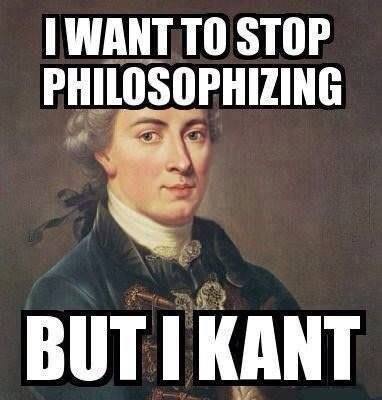Please disable your adblock and script blockers to view this page
A phenomenal and analytical personality system
 Christian
Christian-
Published: 08-08-2016 Edited: 08-12-2016
- Personality is a concept born out of Continental philosophy than begun in the Enlightenment period. The re-discovery of ancient Greek philosophy combined with a experimental and speculative inspiration of Eastern Asian philosophy via Arthur Schopenhauer, Fyodor Dostoyevsky, Friedrich Nietzsche, Martin Heidegger and Carl Jung and many others brought about a movement which is speculating about existential issues, motivational issues, individual differences, phenomenal qualities, subjectivity, social power, and issues about purpose and meaning as well as a mix of all those.
On the other camp we have the analytical philosophical school which emphasizes falsifiability, formalism, verificationism, experimentation and empiricism.
Since personality is traditionally in the Continental philosophical camp it has not yet been construed in a way that is acceptable by analytical thinkers. The only acceptable construal of personality today is as distinct sets of personality-factors which lack purpose, goal or comprehension but can be motivated by a statistical procedure called exploratory factor analysis.
For example the five factor model says nothing about why a person behaves a certain way or where the person is heading, it doesn't either make any predictions that are falsifiable other than fulfilling re-test statistical mathematical procedures.
I believe it's wise to be sceptical of using probability theory as the primary proof for any theory. Probability theory emerged out of the gambling industry as a way to make predictions to win money. One of the biggest issues with probability theory is that it's often hard to discern the accurate probability of a event happening in the future since there can be unknown variables and those variables can be impossible to discover.
A good personality-system would fill the existential void in the post-modern world by supplying purpose and meaning and at the same time be falsifiable, verifiable, formal, comprehendable and usable. Just like a good map it should be usable to navigate in a dedicated terrain.
The Jungian model of personality is a cognitive toolbox that is cherised for it's existential and philosophical dimensions and helps cognizing about types / forms of mental states of the self, other, groups and society. Carl Jung used some of Karl Marx's embracing of Georg Wilhelm Friedrich Hegels dialectical form of historicism and applied it on individual differences. However the system was never completed and is still a system that is not coherent or acceptable by analytical standards.
Like Karl Popper argued in his postpositivistic epistemology, a good scientific theory should place as many constrains as possible on experimental outcomes and make predictions which corroborates on it's value if they are fulfilled or otherwise falsify. Since proving that any theory is universally true is impossible but a single counter-instance conclusively falsifies the corresponding universal law it's better to focus at trying to falsify than verify.
I believe that Poppers post-positivistic epistemological ideal is one of the most ontologically relevant ones and is the only analytical epistemology which takes into account the subjectivity involved in empiricism and positivism but which is often excluded from the analysis.
So a ideal personality system would:
- Provide answers to existential questions (context, meaning, direction, history)
- Place as many constrains as possible on conceivable experimental outcomes, in other words be highly falsifiable
- Make successful predictions that have corroborated on it's value
- Concepts should correspond in some way to reality, they should be useful to describe reality with
Therefore I suggest that personality descriptions should be risky, in the way that they should try to be as specific as possible. Put it in another way, if you can agree fully to more than one personality description in a personality type system it's probably a bad system. Also if you could fully agree to having contradicting cognitive functions then the cognitive functions are probably useless.
Many times Jungian hardcore practioners can reason that a person could be either of two types (which are cognitive function opposites) and I see this phenomena as evidence for the lack of usefulness in cognitive functions as a system for describing reality in any way.
-
-
You might be interested in.
